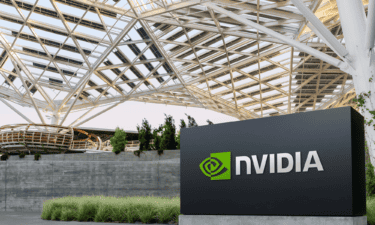According to new research out of the Brookfield Institute for Innovation and Entrepreneurship, more than 40% of Canadian jobs have a high risk of being automated over the next 20 years. “Our findings show that a significant percentage of Canadian jobs are at a high risk of being replaced by automation over the next 10-20 years,” the organization wrote in a statement.
CTV News notes that automation can already be seen in “automated grocery store checkout counters to electronic immigration kiosks at airports.” With advances in technology, however, “automation is now moving beyond manual and routine tasks to roles that require thinking, such as driving a trucks or conducting job interviews,” it adds.
With the economy set to undergo a major transition over the next few decades, which companies are set to gain from the shift? Which stocks have massive upside potential from rampant automation?
Building robotics
With rising wages and a focus on cost efficiencies, the automation industry has seen huge growth over the last 10 years. ATS Automation Tooling Systems Inc. (TSX:ATA) has already capitalized on this long-term trend.
The company provides global factory automation solutions, including the planning, designing, and building of automated factories. In the past five years alone earnings have grown by an average of 22.6% a year. From the start of 2011 to its highs last year, ATS stock grew over 120%. However, recent market turmoil has sent shares reeling down to levels not seen since 2013.
Full-year profits for 2016 are expected to be $0.70 a share, meaning the stock only trades at 13.8 times earnings. With secular industry tailwinds and a rock-bottom valuation, ATS stock looks to have the rare combination of high growth and value.
Software is also a driving force
Constellation Software Inc. (TSX:CSU) has also been a major benefactor of ongoing automation efforts, with earnings growing at nearly 30% annually over the last five years. This year, however, shares are down about 12%, a rare dip for a proven generator of long-term profits.
Constellation’s core business isn’t going away any time soon. It acquires, manages, and builds vertical market software businesses. This software is incredibly niche-focused, providing mission critical software solutions that address the specific needs of customers in particular markets. Its software is almost always high margin with impressive renewal rates.
Shares now trade at only 27.7 times 2016 earnings. While this doesn’t appear extraordinarily cheap, consider the company’s five-year average valuation of 38 times profits. For 2016, analysts are expecting profits to grow yet again to $18.29 a share.







